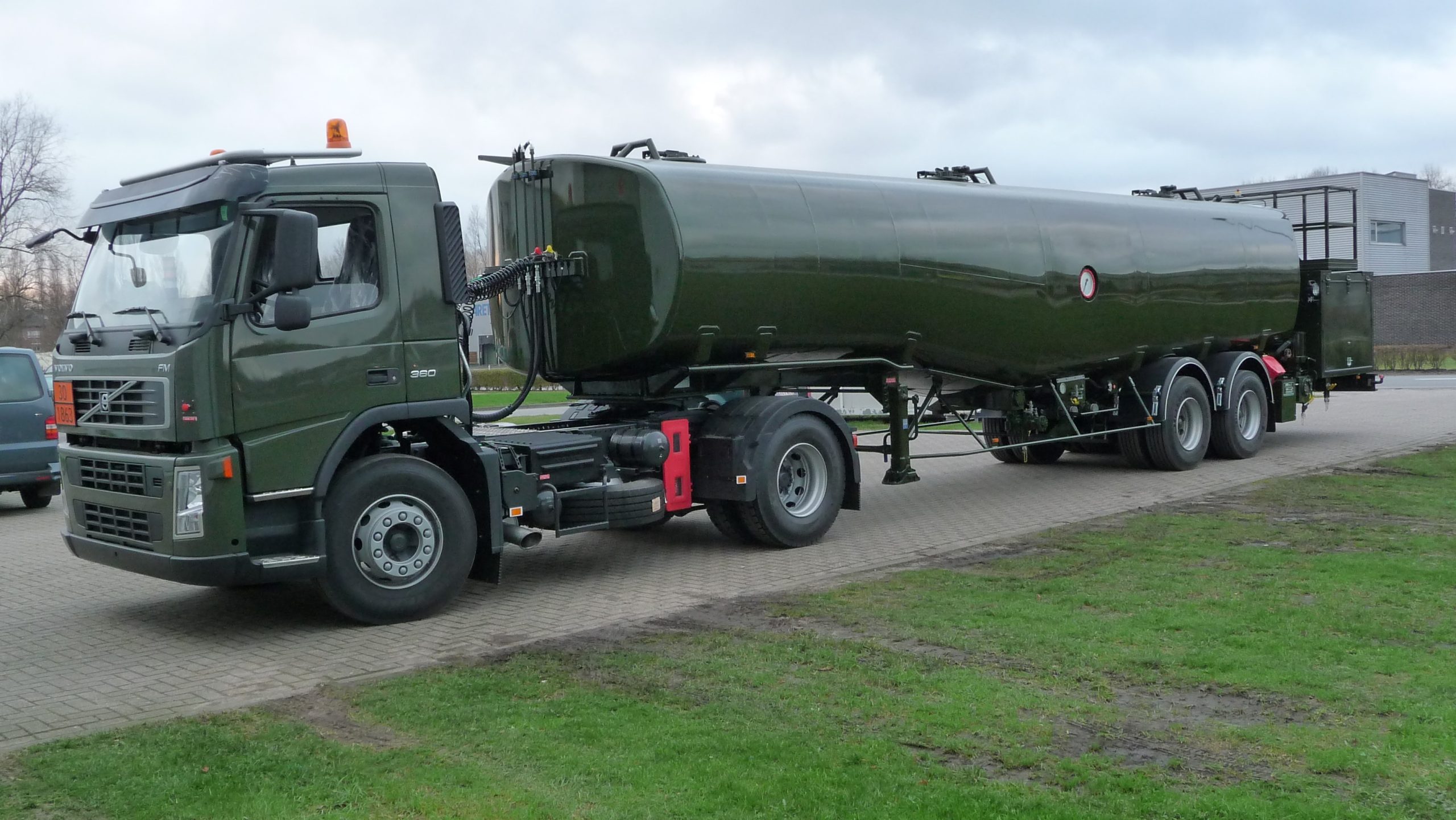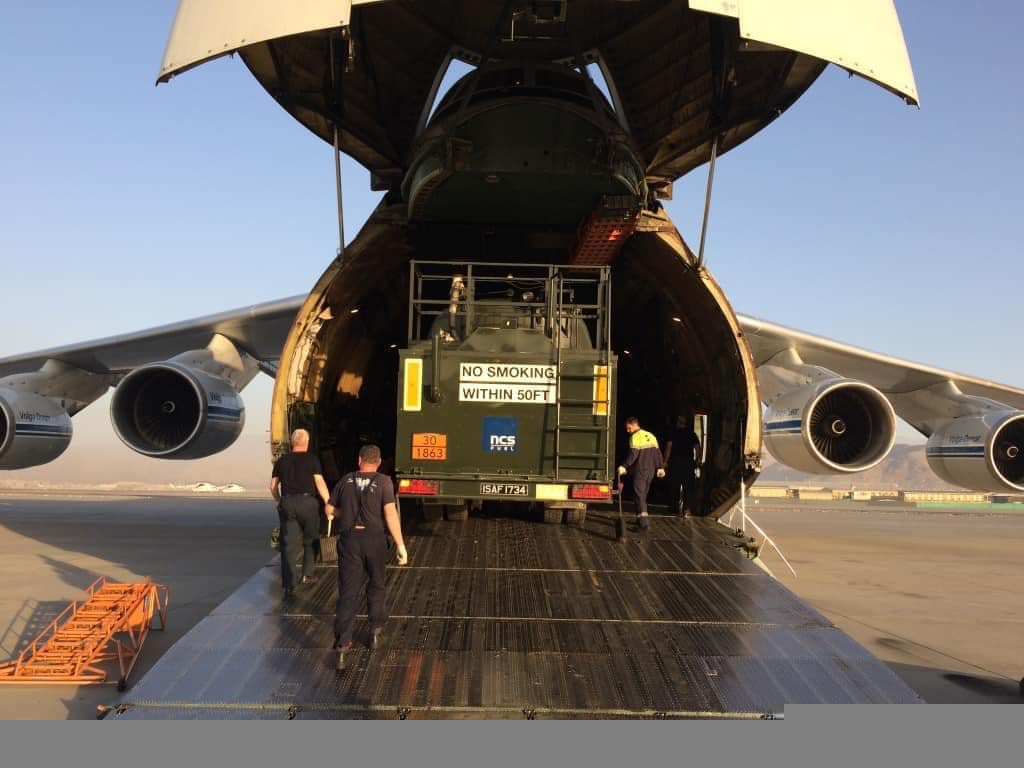
Who Supplies NATO-Standard Aviation Fuel Trucks?
NATO-standard aviation fuel trucks play a crucial role in supporting military aviation operations by ensuring that aircraft receive safe, reliable, and efficient refuelling. These specialized vehicles are designed and manufactured to meet strict military standards and specifications for fuel quality, safety, and operational reliability in diverse and often challenging environments.
This article explores the key suppliers of NATO-standard aviation fuel trucks, the essential features of these vehicles, and the importance of their compliance with NATO regulations for multinational military operations.
What Are NATO-Standard Aviation Fuel Trucks?

Before identifying the suppliers, it’s important to understand what distinguishes NATO-standard aviation fuel trucks from regular fuel trucks. These vehicles must comply with specific technical standards and operational requirements defined under NATO Standardization Agreements (STANAGs).
These standards ensure interoperability among allied forces, safety in handling aviation-grade fuels, and the ruggedness necessary for military environments.
Typical features include:
- Compliance with NATO Fuel Specifications: Ensuring the trucks can safely transport and dispense aviation fuels meeting NATO standards, such as F-34 (JP-8) or F-35.
- Enhanced Safety Systems: Grounding and bonding mechanisms to prevent static discharge, spill containment, and fire suppression systems.
- Durability and Mobility: Capability to operate on and off-road, allowing refuelling in tactical or deployed environments.
- Interoperable Fueling Equipment: Standardized hoses, nozzles, and fittings compatible with NATO aircraft and fueling stations.
- Advanced Filtration and Monitoring: To maintain fuel purity and quality.
Leading Suppliers of NATO-Standard Aviation Fuel Trucks
Leading suppliers of NATO-standard aviation fuel trucks include prominent manufacturers. These manufacturers ensure their vehicles meet stringent NATO requirements for interoperability, safety, durability, and fuel quality, supporting seamless multinational military aviation operations.
Oshkosh Defense
Oshkosh Defense, based in the United States, is a global leader in military vehicle manufacturing. They are widely recognized for producing the M978 HEMTT (Heavy Expanded Mobility Tactical Truck) Fuel Servicing Truck, one of the most prevalent NATO-standard aviation fuel trucks in use.
- Key Strengths: The M978 HEMTT features all-terrain mobility, a robust fuel tank system, and advanced safety measures compliant with military specifications.
- Global Presence: Oshkosh supplies the U.S. military and many NATO allies, making it a trusted brand for aviation fuel handling in defense sectors.
Rosenbauer
Rosenbauer, headquartered in Austria, is a renowned manufacturer specializing in airport firefighting and refuelling vehicles. They produce NATO-compliant fuel trucks designed specifically for aviation fuel transport and refuelling operations at airbases and military airports.
- Key Features: Rosenbauer’s trucks offer large fuel capacities, corrosion-resistant materials, and integrated safety systems to meet NATO standards.
- Customer Base: Rosenbauer serves European NATO countries and partners, supporting both military and civilian airport fueling needs.
Arcus Fahrzeugbau
Based in Germany, Arcus Fahrzeugbau is a specialist in manufacturing customized military support vehicles, including aviation fuel trucks that meet NATO standards.
- Specialization: Arcus focuses on tailor-made fuel trucks with rugged designs suited for tactical use, ensuring compliance with STANAG fuel handling requirements.
- Flexibility: Their products are often customized to the specific needs of NATO member nations, supporting interoperability in joint operations.
Iveco Defence Vehicles
Iveco Defence Vehicles, an Italian company, offers a range of military vehicles, including aviation fuel tankers built to NATO specifications.
- Capabilities: Iveco’s trucks feature advanced fuel handling systems, off-road capabilities, and built-in safety features aligned with NATO standards.
- Deployment: These vehicles serve several NATO member countries, providing reliable aviation fuel support in diverse theaters.
CIMC Vehicles Group
A Chinese manufacturer with a growing international presence, CIMC Vehicles Group produces military-grade aviation fuel trucks designed for NATO and other allied standards.
- Strengths: CIMC offers high-capacity, environmentally controlled fuel trucks with advanced safety and monitoring systems.
- Global Reach: They supply vehicles to multiple military forces and have expanded their offerings to meet NATO interoperability requirements.
Local and National Defense Contractors
Beyond these multinational suppliers, many NATO member countries rely on domestic defense contractors to provide aviation fuel trucks meeting NATO standards. These manufacturers often customize vehicles to fit national military doctrines while ensuring compatibility with NATO requirements for joint operations.
Why NATO Standards Matter for Aviation Fuel Trucks
The aviation fuel supply chain within NATO forces demands consistency, safety, and interoperability due to multinational missions and shared resources.
The reasons NATO standards are critical include:
- Interoperability: Aircraft from different NATO nations must be refueled using compatible equipment to avoid delays and operational issues during joint missions.
- Safety Assurance: Handling aviation fuel carries significant risk due to its flammability and sensitivity.
- Fuel Quality Maintenance: Contaminated or improper fuel can damage aircraft engines.
- Operational Reliability: Military operations often occur in remote or harsh environments.
Challenges in Supplying NATO-Standard Aviation Fuel Trucks

Manufacturers face several challenges in designing and supplying these trucks:
- Complex Regulations: Complying with multiple NATO STANAGs and national regulations requires advanced engineering and certification processes.
- Customization Needs: Different NATO countries have varying operational requirements, demanding flexible designs.
- Technological Integration: Modern military fueling trucks require integration of real-time fuel quality sensors, GPS tracking, and advanced safety systems.
- Cost and Logistics: Producing and delivering these specialized vehicles can be costly and logistically complex.
Conclusion
NATO-standard aviation fuel trucks are indispensable assets for the allied military aviation community. They ensure that aircraft can be refueled safely, efficiently, and reliably in diverse operational scenarios. Leading global suppliers such as Oshkosh Defense, Rosenbauer, Arcus Fahrzeugbau, Iveco Defence Vehicles, and CIMC Vehicles Group continue to innovate and provide advanced fueling solutions that meet strict NATO standards.
- Importance of Emergency Fuel Shutoff in Aircraft Refueling
- Aircraft Fuel System: What’s Inside Aircraft Fuel Tanks
As NATO and its member nations continue to modernize and expand their military aviation capabilities, the demand for these specialized fuel trucks will only grow. Collaboration between manufacturers, defense agencies, and NATO committees is essential to maintain high standards, improve interoperability, and support the evolving needs of international military aviation operations.

 Maintenance & Repairs
Maintenance & Repairs Vehicle Refurbishment
Vehicle Refurbishment Vehicle Inspection
Vehicle Inspection Vehicle Life Cycle Management
Vehicle Life Cycle Management

